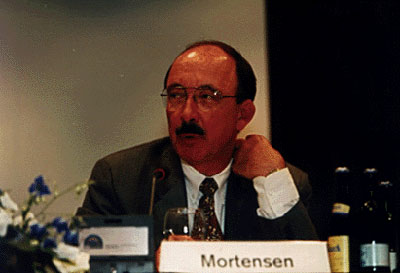Global General
Americans, British-Cypriot win 2010 economics Nobel
(Agencies)
Updated: 2010-10-11 19:48
 |
Large Medium Small |
|
 Peter Diamond [File photo]
|
STOCKHOLM - Two Americans and a British-Cypriot won the 2010 economics Nobel for work focusing on problems like unemployment.
The Royal Swedish Academy of Sciences said the 10 million Swedish crown ($1.5 million) prize recognised US professors Peter Diamond and Dale Mortensen and British-Cypriot citizen Christopher Pissarides.
| ||||
"According to a classical view of the market, buyers and sellers find one another immediately, without cost, and have perfect information about the prices of all goods and services... But this is not what happens in the real world," the prize committee said in a statement.
It said the trio's work enhanced understanding of "search markets" where frictions exist as demands of some buyers are not met and some sellers cannot sell as much as they want.
This could involve simple cases of a buyer and a seller of a product as well as more complex relations between employers and job seekers, or between firms and suppliers.
On the labour market, the laureates' models help understand how unemployment, job vacancies and wages are affected by regulation and economic policy, including the size of jobless benefits, the committee said.
Their theories can also be applied to housing markets, as both vacancies and the time to sell a home vary over time.
The citation said Diamond had analysed the foundations of search markets while Mortensen and Pissarides had expanded the theory and applied it to the labour market.
The economics prize, officially called the Sveriges Riksbank Prize in Economic Sciences in Memory of Alfred Nobel, was established in 1968. It is not part of the original group of awards set out in dynamite tycoon Nobel's 1895 will.
|
 Dale Mortensen [File photo]
|
|
 Christopher Pissarides [File photo]
|


